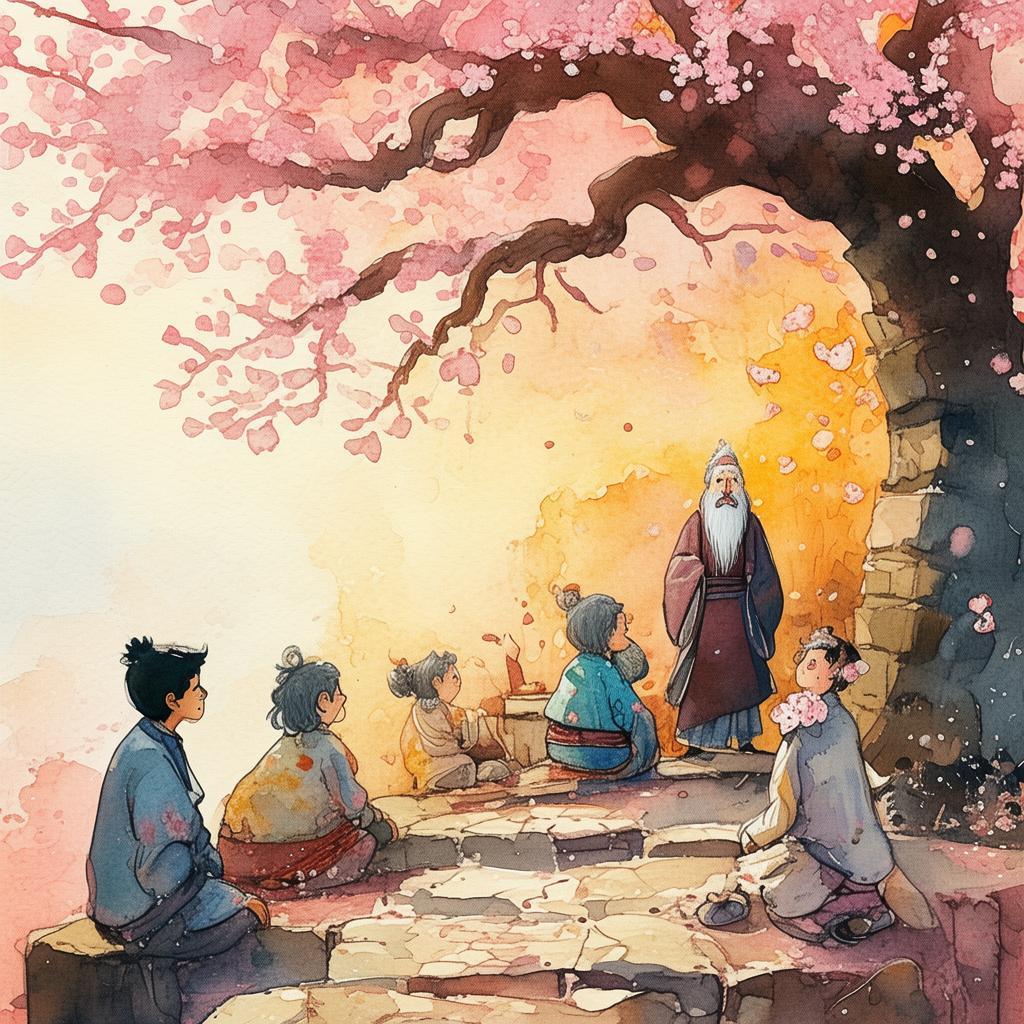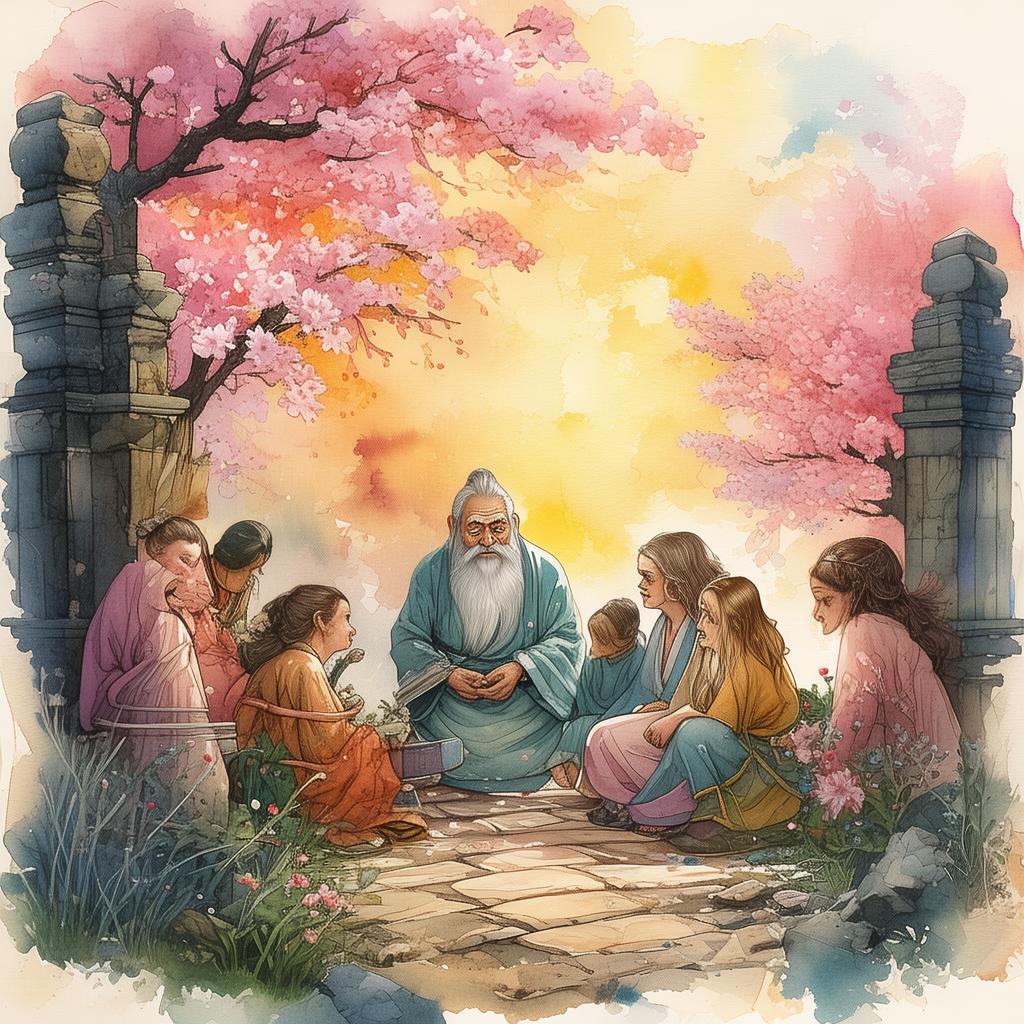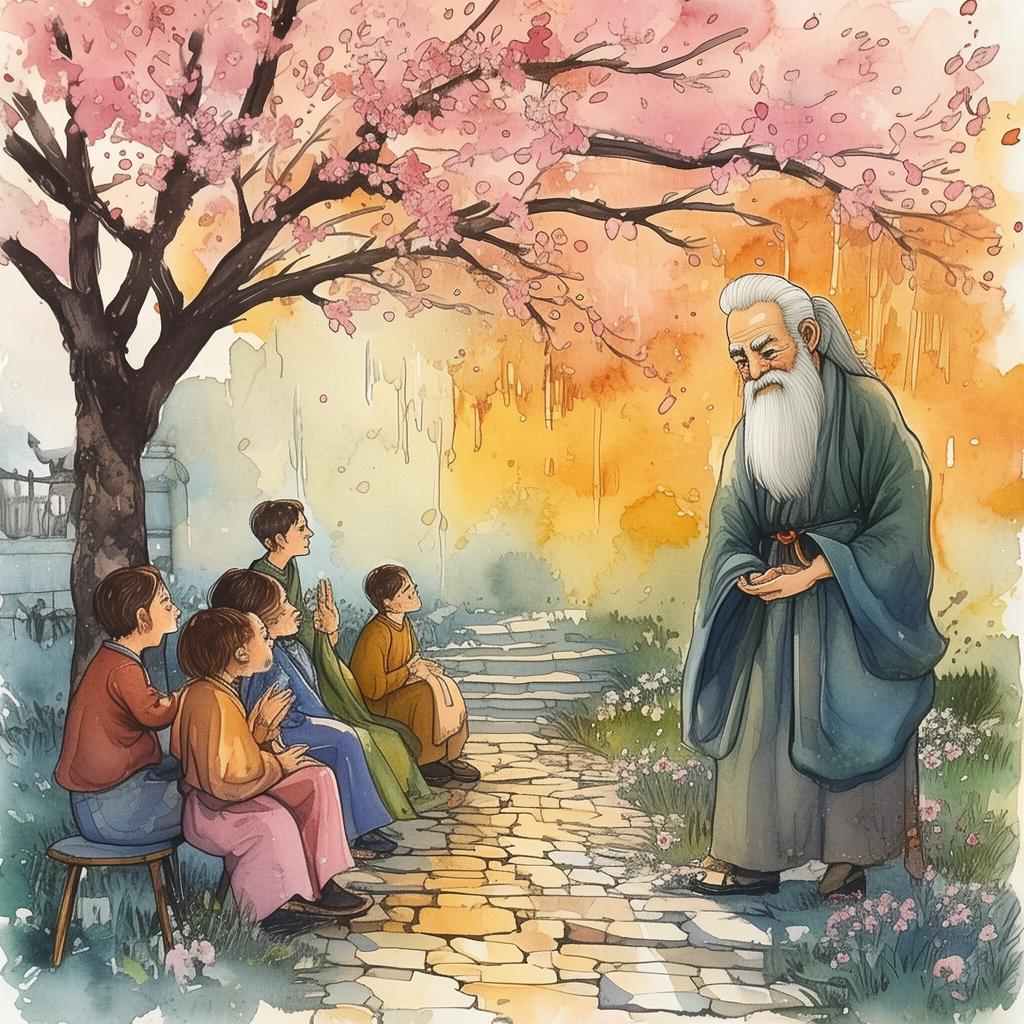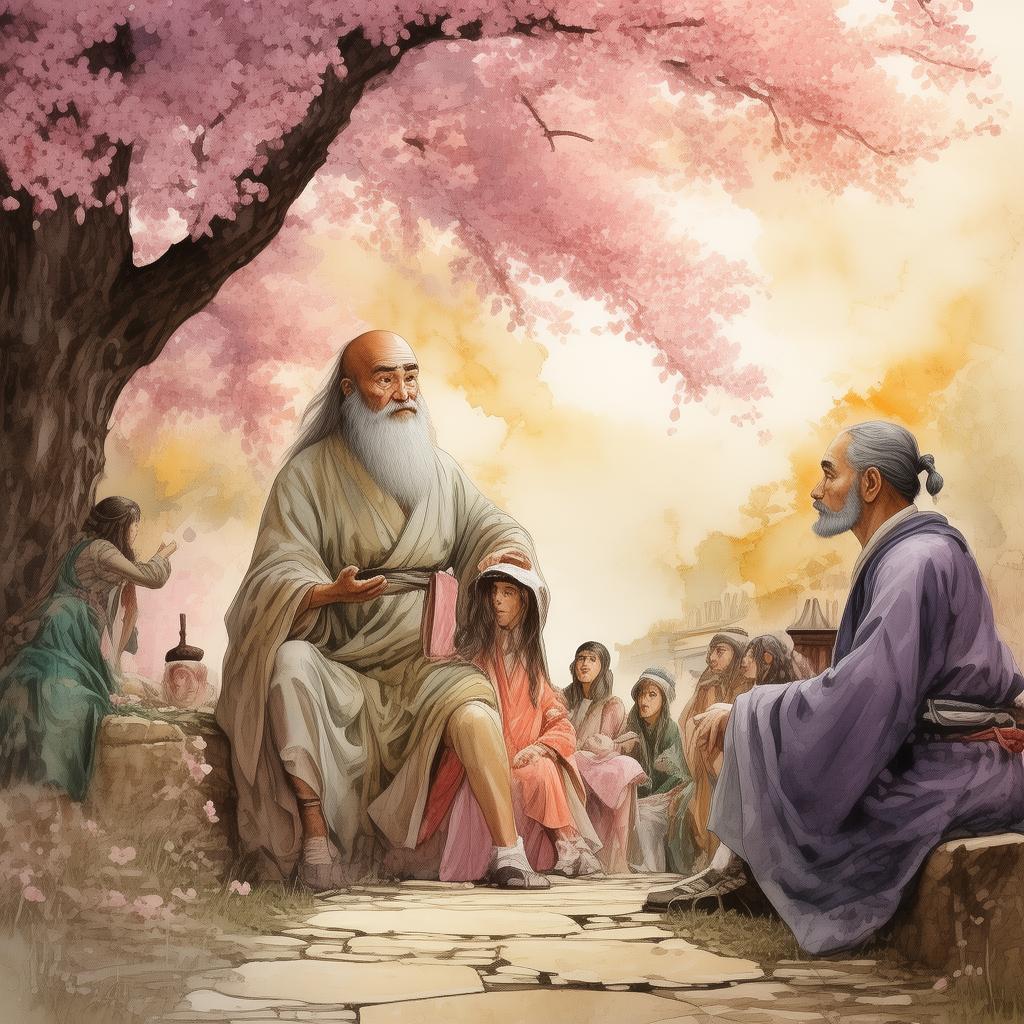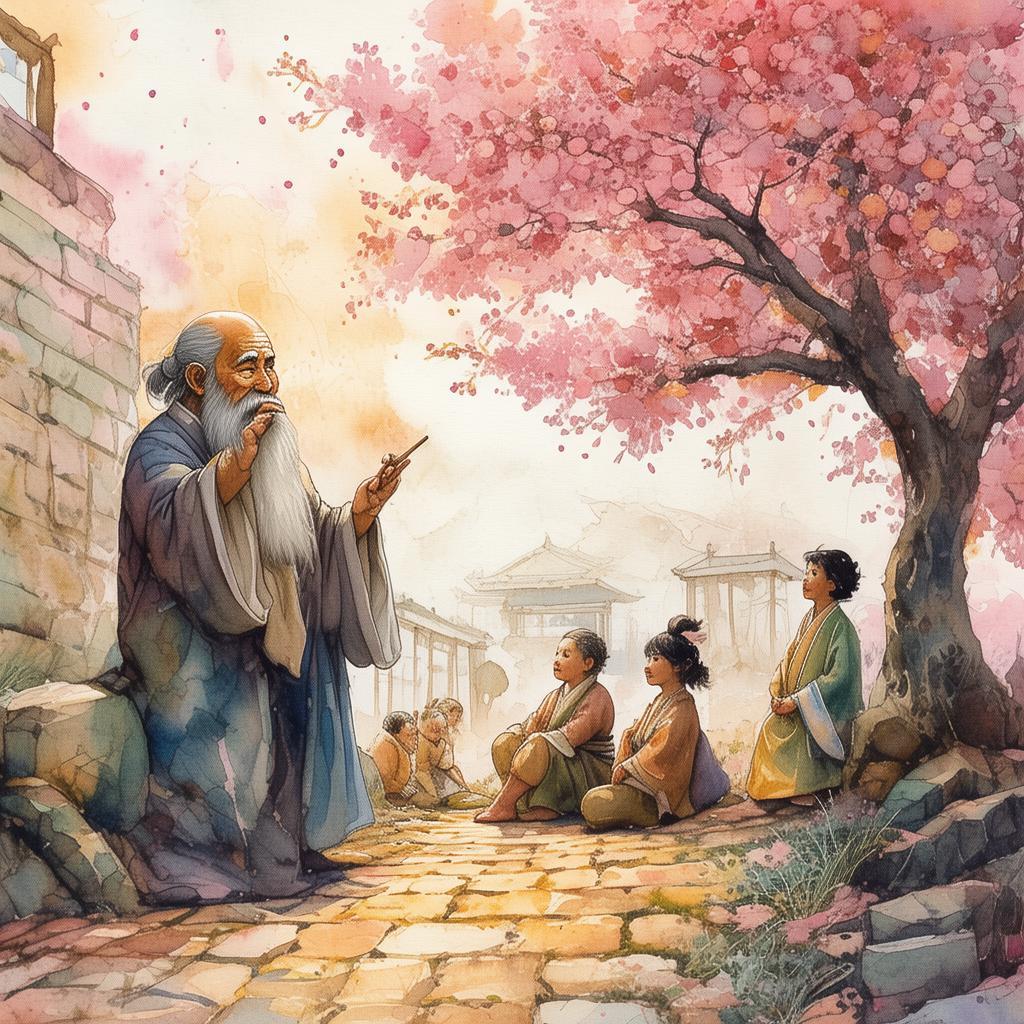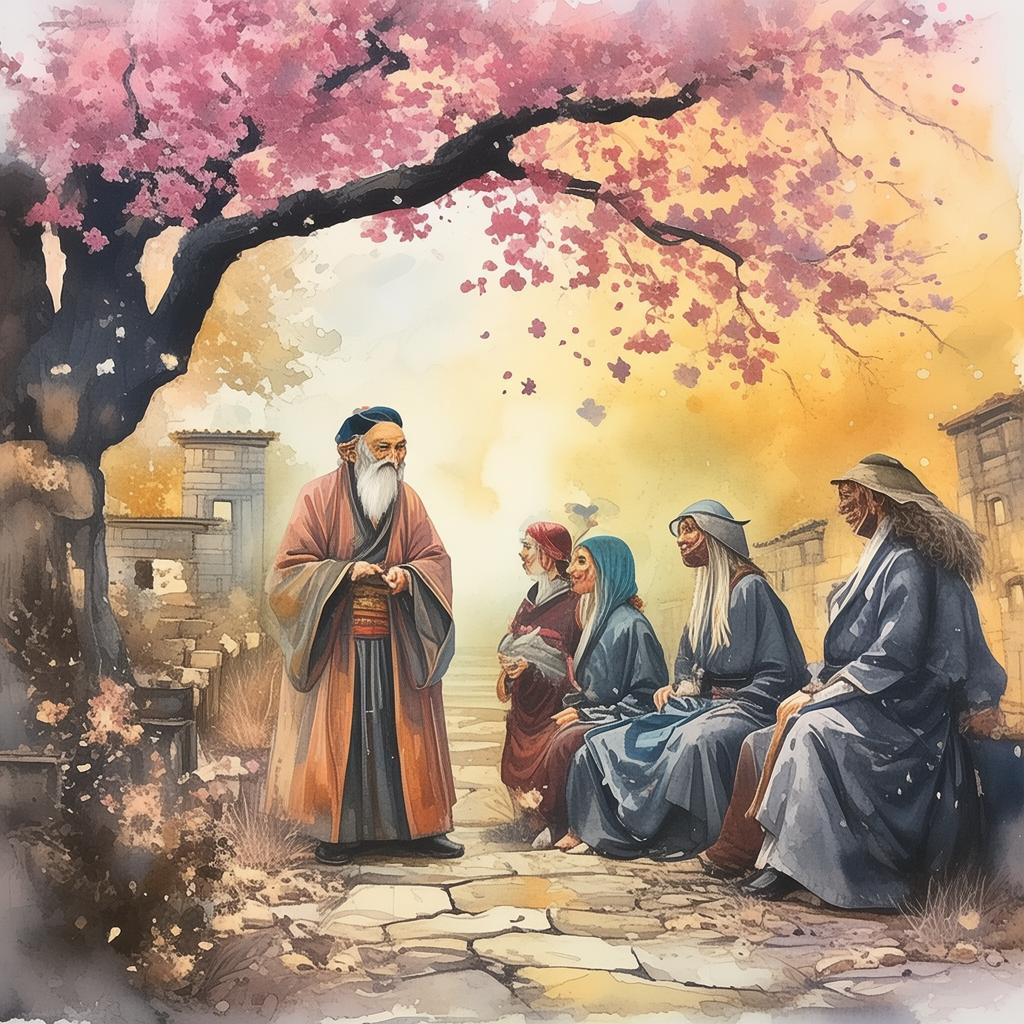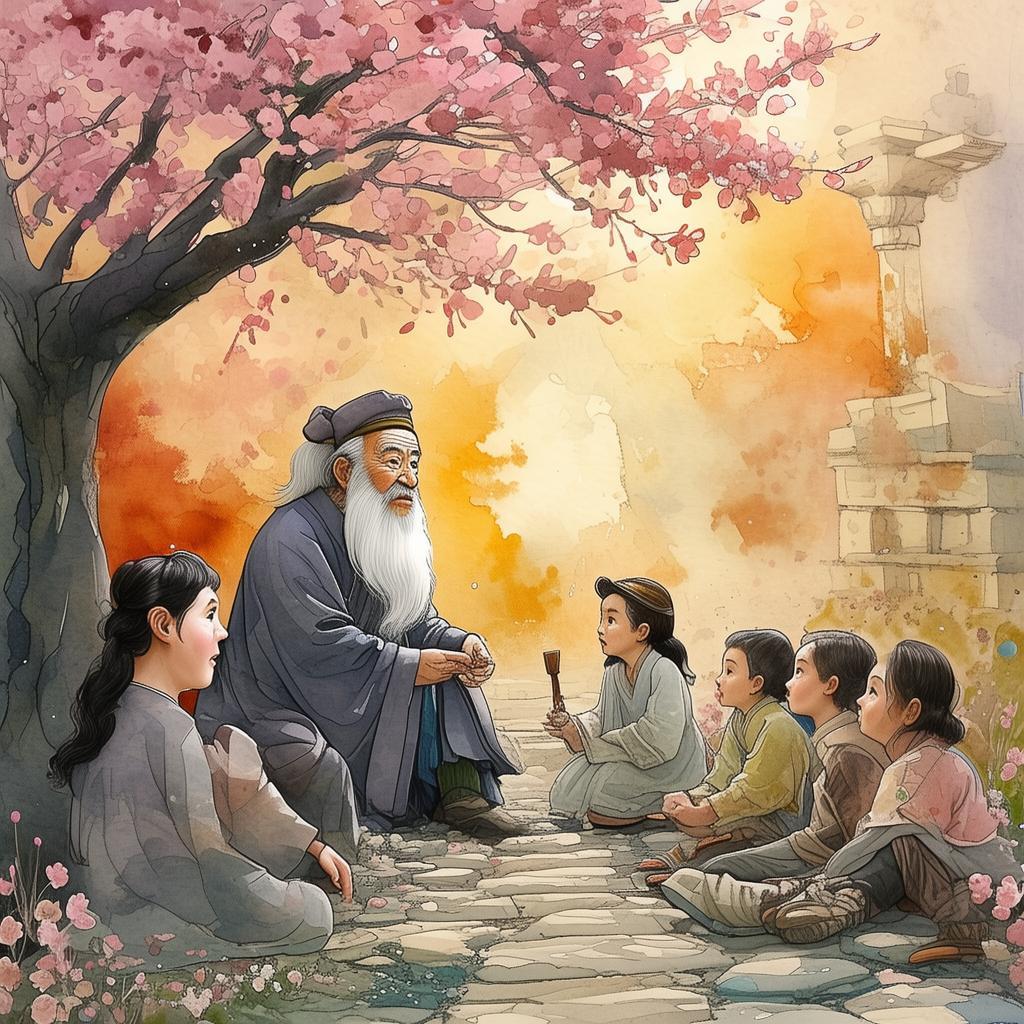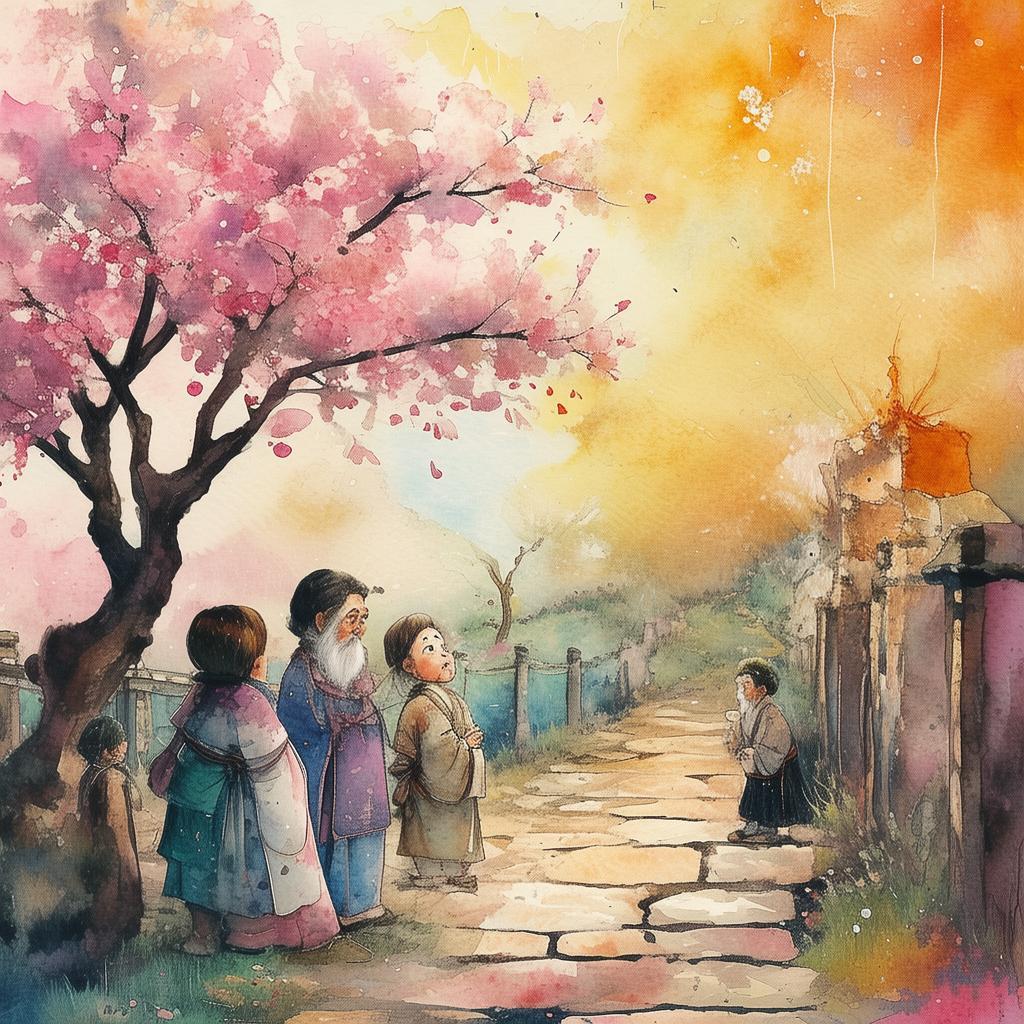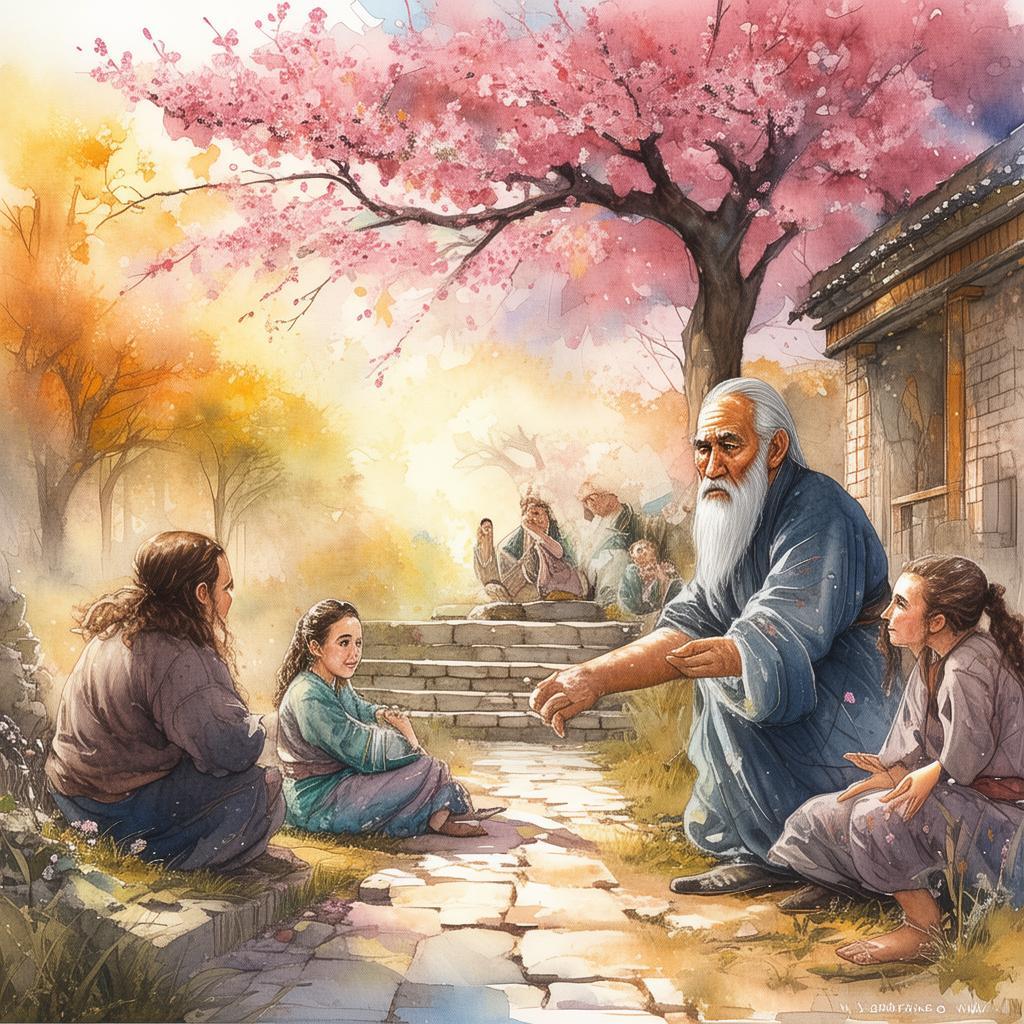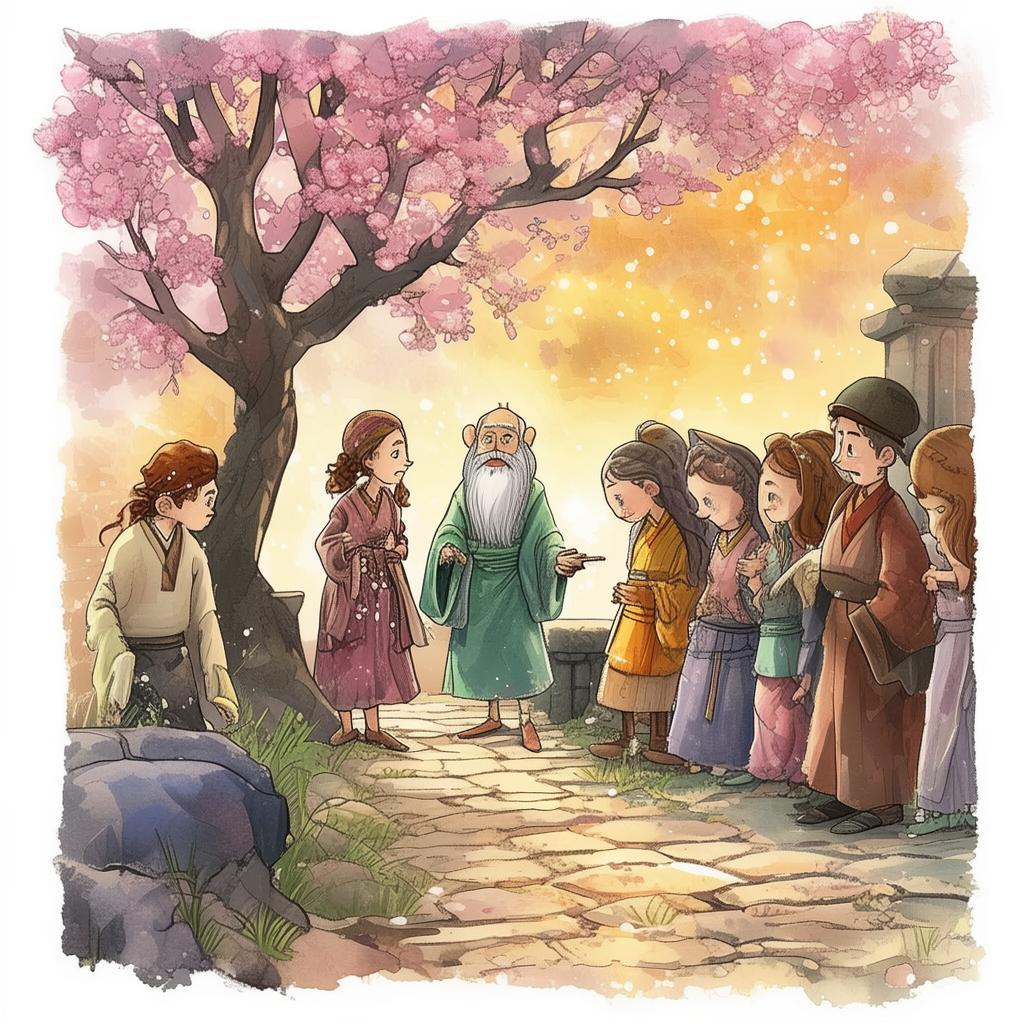The Smith's Redemption: A Forge of Vengeance and Forgiveness
In the heart of a bustling village, there stood a solitary forge, its bell tolling the rhythm of the blacksmith's life. Mo Ya, the village's most skilled smith, was known for his ability to craft weapons that were as sharp as they were beautiful. Yet, his hands, which had shaped so much steel, bore the scars of a past he had long tried to forget.
Once, Mo Ya had been a man of honor, a warrior whose sword was as swift as the wind. But in a battle that raged on for days, he had lost everything. His family, his home, and his honor. In the aftermath, he had turned his back on the world, becoming the blacksmith who only worked with iron, the cold metal that was both his punishment and his solace.
One day, a mysterious figure approached the forge. His eyes were shadowed by the weight of his own past, and his hands bore the scars of a life spent in the shadow of his own demons. He asked Mo Ya to forge a sword for him, a weapon that would not only be the embodiment of his strength but also his redemption.
Mo Ya hesitated, the weight of his own past pressing down on him. But the man's determination was palpable, and he felt a flicker of something he had thought long dead—hope. He agreed to the task, and as he worked, he poured his heart into the iron, shaping it into a blade that was as much a testament to his own struggle as it was to the man who had asked for it.
As the blade took shape, Mo Ya found himself reflecting on his own journey. He remembered the day his world had shattered, the sound of his sword clattering to the ground as he watched his family fall. He remembered the pain, the sorrow, and the anger that had consumed him. But now, as he worked, he felt something different—a sense of purpose, a drive to make amends for the past.
The man who had asked for the sword was a former soldier, a man who had been dishonorably discharged for a crime he had not committed. He had been framed by his own brother, a man who had seen the wealth that could be gained from the soldier's death. The soldier had been forced to flee, and now, he sought to clear his name and avenge his brother's betrayal.
As Mo Ya finished the sword, he handed it to the soldier, who took it with reverence. The soldier knew that this blade was not just a weapon; it was a symbol of his redemption. With each strike, he would be closer to the truth, closer to justice, and closer to the peace he had long sought.
But as the soldier left the forge, Mo Ya felt a pang of regret. He had forged a blade of redemption, but he had not yet found his own. He knew that he had to face his past, to confront the shadows that still haunted him. He had to find the strength to forgive himself, to let go of the anger and the sorrow that had bound him for so long.
The next day, Mo Ya set out on a journey to find the man who had framed him in the battle. He traveled through the countryside, facing many challenges, but each step brought him closer to the truth. He found the man, a man who was now a broken old man, living in poverty and regret.
Mo Ya approached the old man, his heart heavy with the weight of his past. He spoke of the battle, of the lies, and of the pain. The old man listened, his eyes filled with sorrow and remorse. He confessed to his actions, and Mo Ya, in that moment, felt the chains of his past begin to break.
The old man offered his apologies, and Mo Ya, in a moment of profound forgiveness, forgave him. He realized that he had been holding onto the past for far too long, and that it was time to let go. He returned to the forge, his heart lighter, his spirit renewed.
The forge became a place of healing, a place where Mo Ya could forge not just weapons, but hope. He worked with his hands, shaping metal into symbols of strength and resilience. He taught others the art of blacksmithing, sharing his story and his wisdom.
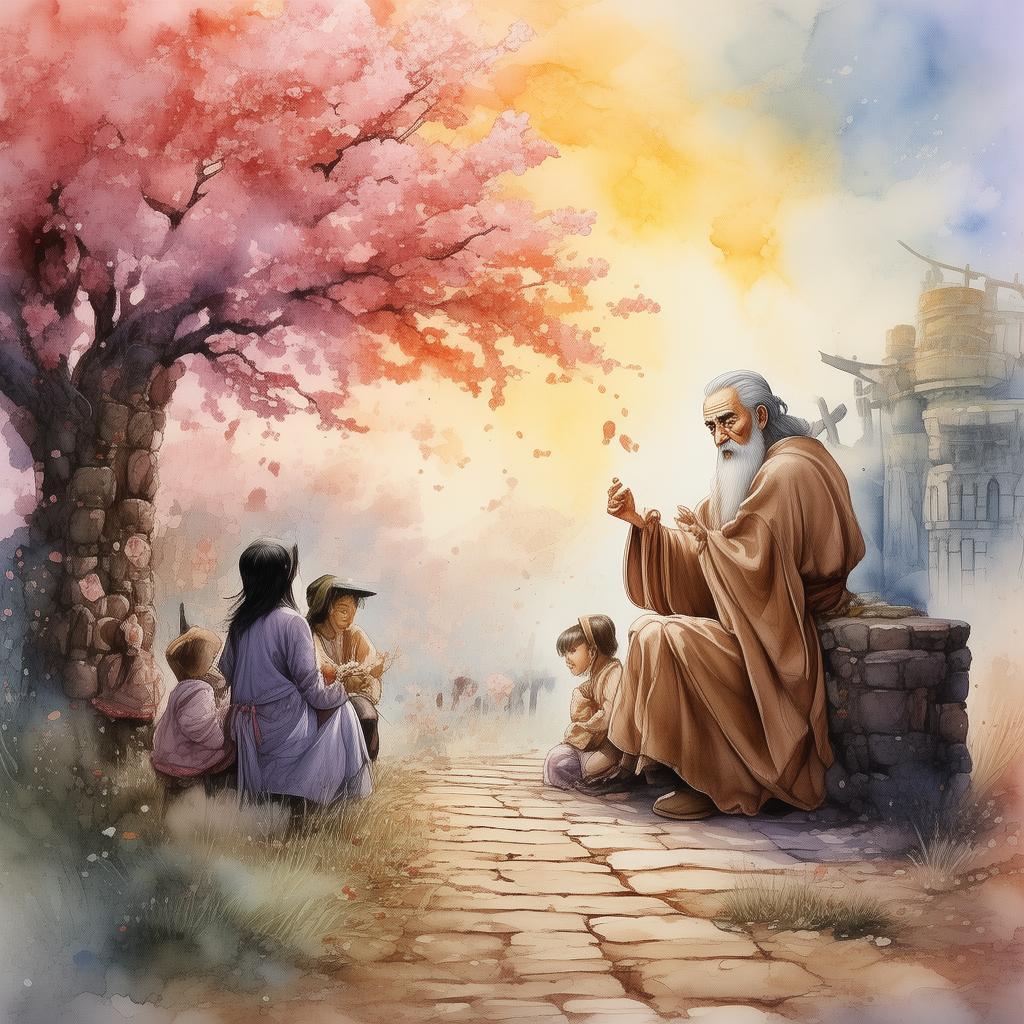
And so, the village began to change. The blacksmith who had once been a symbol of sorrow and loss became a beacon of hope and forgiveness. His forge became a place where people could come to find solace, to forge their own paths to redemption.
The soldier, with his new blade, cleared his name and avenged his brother's betrayal. He returned to the village, a man of honor once more. He and Mo Ya became friends, their bond forged in the fires of their shared journey.
And Mo Ya, the blacksmith, found his redemption. He had forged a sword of redemption for the soldier, and in doing so, he had forged his own. He had learned that forgiveness is not just a gift to others, but a gift to oneself. And in that forgiveness, he found peace, a peace that had been long hidden in the shadows of his past.
✨ Original Statement ✨
All articles published on this website (including but not limited to text, images, videos, and other content) are original or authorized for reposting and are protected by relevant laws. Without the explicit written permission of this website, no individual or organization may copy, modify, repost, or use the content for commercial purposes.
If you need to quote or cooperate, please contact this site for authorization. We reserve the right to pursue legal responsibility for any unauthorized use.
Hereby declared.
